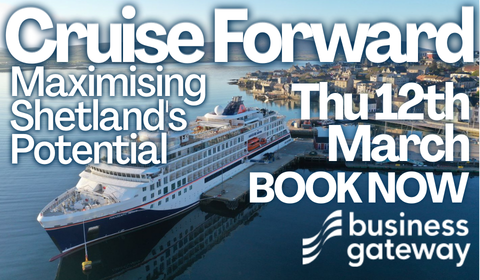Council / SIC report advises against introduction of visitor levy
COUNCILLORS will be recommended not to pursue the introduction of a visitor levy in Shetland.
However, there is a recommendation for Shetland Islands Council (SIC) to continue to engage with the Scottish Government regarding alternative levy models and discretionary revenue-raising powers.
Councillors will make their decision on the levy at a meeting of the policy and resources committee on Monday.
It comes after the Western Isles paused any further development on the topic until more was known about a potential separate cruise levy, while Orkney is due to consider a report later this month.
A report to Shetland councillors recommends against adopting the levy as the “risks outweigh the benefits”, with the administrative burden on accommodation providers a key worry as well as the potential impact on visitor numbers.
Under new legislation in Scotland, councils now have the power to introduce a levy on overnight stays, which would allow them to raise additional income. Similar levies are in place elsewhere in the world, including in some European cities.
The aim is to generate revenue to develop, support or sustain facilities and services which are substantially for, or used by, people visiting the area for leisure or business purposes.
Edinburgh was the first council area to announce the ‘tourist tax’, with a five per cent levy set to commence in 2026.
Some businesses have expressed concern that it could result in some visitors deciding against coming to Edinburgh, but the city’s council heralded the funding boost it could bring.
Earlier this year the councils in Shetland, Orkney and the Western Isles appointed a consultant to investigate the feasibility of a visitor levy scheme for each of the three areas.
A report to councillors said stakeholder engagement as part of this process revealed a “high level of opposition” to the levy, especially on the potential negative impact on local accommodation providers.
Become a member of Shetland News
This included possible effects like increased costs and administration, and the impact on visitor numbers.
There was also concern over the impact on locals using overnight accommodation, and VAT implications.
Some providers also said they may consider closing down due to the increased cost and time and effort that the levy legislation would bring.
The report said if 30 per cent of people were exempt, a five per cent levy is projected to generate less than £1 million over a ten-year period.
The report to councillors said feedback from the engagement exercise showed that alternative forms of revenue generation, including point of entry and cruise levies, were considered to “potentially be more favourable”.
The feasibility report, from consultants Urban Foresight, recommend that a comparative cost benefit analysis be undertaken of all feasible levy types, including cruise and entry point.
The Scottish Government recently consulted on the idea of a separate levy on the cruise ship sector.
Lerwick Port Authority confirmed last week it had raised concerns about the idea of a cruise levy in its response to the consultation.
Meanwhile the feasibility study report on a visitor levy in Shetland said accommodation is dominated by small and micro businesses, with flats, guesthouses, chalets and B&Bs making up the bulk of provision.
Tourism contributed an estimated £50 million to Shetland’s economy in 2024, with visitors’ average stay being around six nights.
Become a member of Shetland News
Shetland News is asking its readers to consider paying for membership to get additional perks:
- Removal of third-party ads;
- Bookmark posts to read later;
- Exclusive curated weekly newsletter;
- Hide membership messages;
- Comments open for discussion.
If you appreciate what we do and feel strongly about impartial local journalism, then please become a member of Shetland News by either making a single payment, or setting up a monthly, quarterly or yearly subscription.





































































